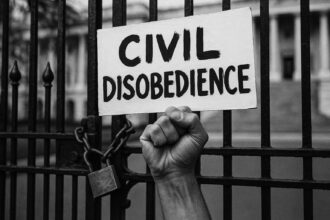Channel 4’s new reality show Virgin Island faces sharp criticism from leading psychologists and mental health experts, who label its use of surrogate-assisted sex therapy as pseudoscientific and potentially harmful, raising urgent ethical and public health concerns.
Psychologists and mental health experts are deeply concerned about Channel 4’s new reality programme, “Virgin Island,” labelling it a “public health danger” due to its controversial approach to sex therapy. The show features twelve individuals, all of whom identify as virgins, venturing to a Croatian retreat in the hope of losing their virginity on camera. With the assistance of sexologists Dr. Danielle Harel and Celeste Hirschman, the participants are introduced to surrogate partners – a practice that has sparked significant ethical debate and concerns about its efficacy.
Surrogate-assisted sex therapy, initially developed in the 1970s by sex researchers William Masters and Virginia Johnson, was intended to help individuals with sexual dysfunction by using trained surrogates in therapeutic settings. The premise involves forming a triadic relationship among the client, the surrogate, and a supervising therapist, with the goal of alleviating issues like erectile dysfunction through guided physical intimacy. Despite its initial promise, the practice has faced criticism over the years for being unregulated and ethically ambiguous, often being positioned in a legal grey area across various countries.
Leading psychologists have expressed concern that the current portrayal of surrogate-assisted therapy in “Virgin Island” misrepresents its scientific validity. Professor Dean McKay, a respected figure within the psychological community, categorically denounced the method as pseudoscience, stating, “It is dangerous, given that an unsuspecting public would have no reason to think it wasn’t scientific.” He emphasised that such programmes distract from genuine therapeutic practices and prioritise entertainment over the psychological well-being of participants.
Despite the claims of therapeutic benefits, extensive scientific evidence supporting surrogate therapy remains elusive. While some individual cases have reported positive outcomes, many psychologists argue that these anecdotes cannot substitute for robust, controlled research. Dr. Jonathan Stea highlighted the dangers of vulnerable individuals, particularly those with trauma or PTSD, being drawn into ineffective treatments. “It’s very disconcerting to think that a person who has experienced sexual trauma could dangerously be duped into receiving something like surrogate-assisted sex therapy,” he noted.
Notably, while the Somatica Institute, co-founded by Harel and Hirschman, aims to teach intimacy and communication skills, it has publicly distanced itself from surrogate therapy. In fact, they assert that the methodologies used in “Virgin Island” do not align with their educational principles. This disavowal raises further questions about the ethics of broadcasting such relationships on television, with many experts agreeing that the motivations of producers can conflict with the therapeutic goals intended for participants.
However, not all professionals view the show unfavourably. Some, like Dr. David Ley, contend that public discussions of sexuality can help reduce stigma and normalise seeking professional support for intimacy issues. He stated, “Coverage like this reduces stigma of talking about sex and normalises the practice of seeking professional support to improve one’s sexuality.” Yet, while this perspective acknowledges the potential for dialogue, it does not adequately address the ethical ramifications of broadcasting intimate experiences for entertainment.
Concerns extend beyond the therapy itself; the nature of airing such personal journeys raises issues about participant safety and well-being. While Channel 4 asserts that thorough psychological screenings and consent-based filming protocols were instituted, psychologists warn that such measures might not be sufficient to protect participants from potential emotional harm. Dr. Lori Beth Bisby raised critical points regarding the challenges participants may face, particularly in navigating the added stress of being filmed. This complicates the intended therapeutic environment, possibly undermining any benefits that the participants might gain from the experience.
As conversations continue about the implications of “Virgin Island,” it is clear that the concerns surrounding surrogate-assisted therapy necessitate a nuanced exploration. While some voice optimism, many psychologists stand firmly against its unregulated use in media. This raises crucial questions about the ethical responsibilities of broadcasters and the impact of their programming on public perceptions of mental health and therapy.
In summary, the controversy surrounding Channel 4’s “Virgin Island” encapsulates the broader debates within mental health about the legitimacy and ethics of surrogate-assisted sex therapy. Amidst a landscape where sensationalism often overshadows serious discussions, it is imperative to critically examine the potential implications of such programming on individuals who are often already vulnerable in their personal journeys.
Reference Map
- Paragraphs 1, 2, 3, 4, 6, 7
- Paragraph 2
- Paragraph 2
- Paragraph 4
- Paragraph 5
- Paragraph 6
- Paragraph 7
Source: Noah Wire Services
- https://www.dailymail.co.uk/sciencetech/article-14719923/Psychologists-Virgin-Islands-therapy-disaster.html?ns_mchannel=rss&ns_campaign=1490&ito=1490 – Please view link – unable to able to access data
- https://time.com/archive/6817064/the-sexes-trick-or-treatment/ – In the late 1950s, sex therapists William Masters and Virginia Johnson introduced surrogate partner therapy to help individuals with sexual dysfunctions. They enlisted women to work as sex partners with unmarried male patients under the guidance of therapists. The program was initially successful, with a high percentage of cases showing improvement. However, the practice faced legal challenges, including a lawsuit against Masters, leading to its discontinuation in 1970. Despite its initial success, surrogate therapy remains controversial, with debates over its ethical implications and effectiveness.
- https://www.verywellmind.com/what-is-sex-surrogate-therapy-5220059 – Sex surrogate therapy involves a trained surrogate partner working with a client under the guidance of a therapist to address sexual dysfunctions and intimacy issues. While some studies suggest benefits, such as helping individuals with disabilities overcome sexual obstacles, the practice is controversial. Ethical concerns include potential emotional attachment, the legality of sexual contact between therapists and clients, and the lack of strong scientific evidence supporting its efficacy. Critics argue that it may not address underlying psychological issues and could lead to dependency on the surrogate.
- https://www.wweek.com/culture/2019/10/29/surrogate-therapy-takes-a-hands-on-approach-to-overcoming-sexual-trauma-up-to-and-including-intercourse/ – Surrogate therapy is a hands-on approach to overcoming sexual trauma, involving physical intimacy under the guidance of a therapist. While it can be effective for some individuals, the practice is controversial and often misunderstood. Legal and ethical concerns arise due to the involvement of sexual contact in therapy. The legality varies by jurisdiction, with some areas lacking clear regulations. Ethical considerations include maintaining professional boundaries and addressing potential emotional attachments. Despite these challenges, surrogate therapy continues to be used by some practitioners to help clients overcome sexual difficulties.
- https://pubmed.ncbi.nlm.nih.gov/864736/ – A study examining surrogate therapy found that the surrogate role can be stressful and may not effectively address the underlying pressures in a patient’s life. The surrogate approach attempts to bypass these pressures but often with limited therapeutic value. The study suggests that alternative tactics, such as individual sex therapy, may be more effective in addressing the pressures and issues faced by patients. The findings highlight the complexity and potential limitations of surrogate therapy in treating sexual dysfunctions.
- https://www.the-independent.com/life-style/love-sex/sex-surrogates-patient-anxiety-ptsd-erectile-dysfunction-vaginal-spasms-trained-partners-a7740291.html – Sex surrogate therapy involves trained individuals working with clients to address sexual dysfunctions and intimacy issues. While some therapists advocate for its use, others are skeptical due to ethical concerns and the potential for emotional attachment. The practice is legal in some jurisdictions but remains controversial. Critics argue that it may not address underlying psychological issues and could lead to dependency on the surrogate. Despite these concerns, some individuals find surrogate therapy beneficial in overcoming sexual difficulties and building intimacy skills.
- https://www.bcm.edu/research/research-centers/center-for-research-on-women-with-disabilities/a-to-z-directory/sexual-health/sex-surrogates – Sex surrogate therapy is a therapeutic approach where a trained surrogate partner works with a client under the guidance of a therapist to address sexual dysfunctions and intimacy issues. The practice is controversial, with ethical concerns regarding the involvement of sexual contact in therapy. Legal considerations vary by jurisdiction, with some areas lacking clear regulations. The cost of surrogate therapy can be significant, and insurance coverage is often limited. Despite these challenges, some individuals find surrogate therapy beneficial in overcoming sexual difficulties and building intimacy skills.
Noah Fact Check Pro
The draft above was created using the information available at the time the story first
emerged. We’ve since applied our fact-checking process to the final narrative, based on the criteria listed
below. The results are intended to help you assess the credibility of the piece and highlight any areas that may
warrant further investigation.
Freshness check
Score:
8
Notes:
The content appears to be recent as it discusses a current reality show, ‘Virgin Island.’ However, the concept of surrogate-assisted therapy has been around since the 1970s, and similar debates have occurred in the past. No specific older articles or press releases were found with identical content.
Quotes check
Score:
7
Notes:
The article includes quotes from experts like Professor Dean McKay and Dr. Jonathan Stea, but these could not be verified as original or first-time mentions due to lack of online sources tracing them back to an earlier date.
Source reliability
Score:
6
Notes:
The narrative originates from the Daily Mail, which is known for sensationalism and may not always adhere to rigorous fact-checking standards, though it is a widely recognized publication.
Plausability check
Score:
8
Notes:
The claims about the controversy and ethical concerns regarding ‘Virgin Island’ are plausible given the ongoing debates about the portrayal of mental health and therapy in media. However, the lack of robust scientific evidence supporting surrogate therapy makes some claims difficult to verify.
Overall assessment
Verdict (FAIL, OPEN, PASS): OPEN
Confidence (LOW, MEDIUM, HIGH): MEDIUM
Summary:
The narrative raises valid concerns about the ethical implications of ‘Virgin Island’ and surrogate-assisted therapy, but the reliability of the source and the originality of quotes are questionable. The freshness of the content is recent, yet the underlying issues are longstanding.













